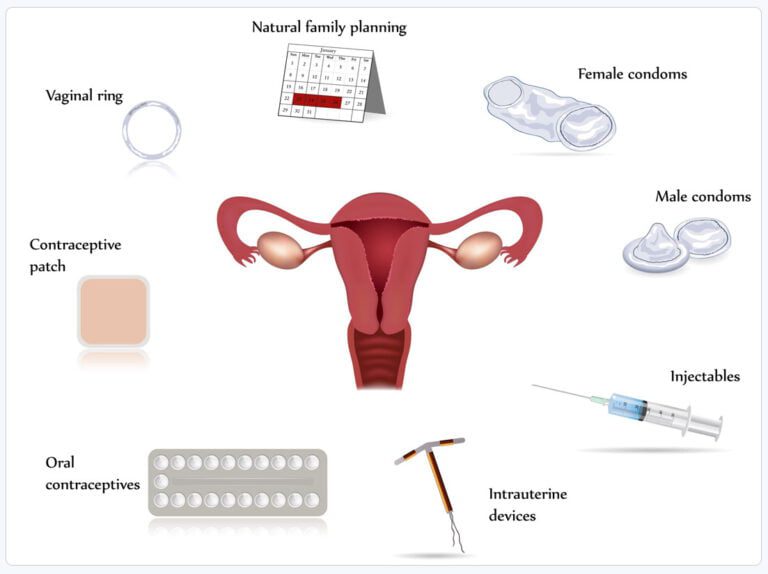Contraceptive Needs for Adolescents
Contraception is of utmost importance among adolescents in today’s time to reduce their pregnancy rates as well as rates of s-e-xually transmitted diseases. That’s because both pregnancy and STDs can have life-changing effects on the lives of adolescents.
What is contraception?
Contraception, commonly referred to as Birth Control, is a safe-intercourse practice to prevent females from conceiving a child by interfering with ovulation, fertilization, and implementation. Some types of contraception can even protect people from catching STDs after mating.
Why do Adolescents need Contraception?
According to Dr. Shilpa Bansal Agrawal, an expert gynecologist in Mumbai, if teenagers get pregnant, they and their child can face physical, mental, and socio-economic consequences and if they get STD, they could experience reproductive health complications such as infertility and even be at great risk of getting affected by HIV. Therefore, adolescent contraception is crucial to treat certain health issues and ensure good reproductive health as well as the overall well-being of youngsters.
Different Methods of Contraception for Adolescents
Reproductive health specialists in Mumbai, Dr. Shilpa Bansal Agrawal at Harleys Cosmetic & Women Clinic can recommend or prescribe a variety of contraceptive options for effective birth control among teens. These include:
Abstinence – Not getting physically intimate or refraining from intercourse is completely effective in avoiding pregnancy and protecting against most types of STDs that are only transmitted through sexual activities.
Barrier methods – Those adolescents who want to have intercourse should use barrier methods every time they have intercourse to avoid pregnancy and get protection against STDs. These barrier methods are available over-the-counter and could be used in combination with other methods. Options include:




Short-Acting Hormonal Methods
These contraceptive methods are only for females as they involve the use of small amounts of female reproductive hormones such as progestin alone or estrogen and progestin in combination to stop ovulation and prevent pregnancy. The methods include:
Long-Acting Reversible Contraceptives
These birth control methods are effective from three years to up to 10 years, depending upon their type. However, none of these options protect against STDs and requires a doctor’s prescription. These contraceptive methods include:
Emergency Contraception
Sometimes called morning-after pills, emergency contraceptive pills are the ones that can be taken soon after having unprotected or under-protected intercourse. For instance, when condoms filled with semen break inside the vagina or no other contraception method is used. Depending upon their types, these pills can be taken for up to 3-5 days after having unprotected intercourse. Some of these pills are available without a doctor’s prescription, but they cannot help in avoiding STDs. These may work best for adolescents who are coerced into having intercourse.
What Barriers do Adolescents Face in Accessing Different Kinds of Contraception?
Although, there are many contraceptive options but adolescents may not be able to use them because of the following barriers:
Most healthcare providers are unaware and insensitive to the special needs of adolescents. They must meet the special needs of adolescents by designing and re-orienting health services.
Consult now the best gynaecologist at Harleys Cosmetic & Women Clinic to know more about Best Birth Control for Teens.
How can Gynecologists help Address Contraceptive Needs Among Teens?
Pediatric-adolescent gynecologist in Mumbai at Harleys Cosmetic & Women Clinic are specialists in diagnosing and treating conditions of reproductive organs for teenagers up to the age of 18. They provide age-appropriate counseling to teens about s-e-xual behavior and ways to avoid getting pregnant or having STDs. Also, they offer guidance to the parents of teens to talk with their adolescent kids about abstinence and contraception. They can help create awareness among teenagers and their parents about contraceptive needs.
Furthermore, gynecologists can assist teens to choose the best option for contraception by providing them with details about different contraception options and help them consider the merits and demerits of each one of them. The details provided by them include the effectiveness of the method, potential benefits and health risks of the method, information on protection against STIs, common side effects of the method, whether it’s possible to return to fertility after discontinuing specific contraception, and where the method can be obtained and at what price.
They provide extensive knowledge about the latest contraception methods. Short-acting hormonal methods and long-acting reversible contraceptives are only available with a gynecologist who prescribes them. By advocating the need for contraceptive services, healthcare providers or gynecologists can act as an agent of change within families and communities where teenage girls belong.


Harleys Cosmetic and Womens Clinic
Shop No 2 C Wing Platinum Height Building
Near MTNL Versova Telephone Exchange
MADHA Signal Andheri West,
Mumbai - 400053 Locate us
Request An Appointment
